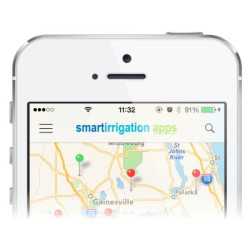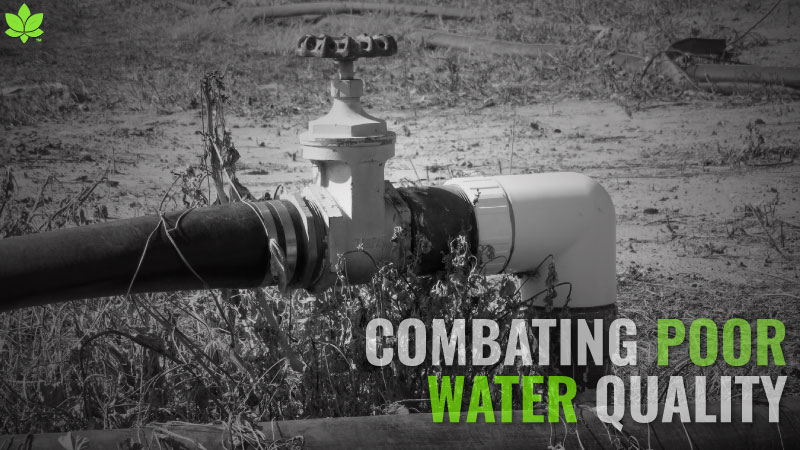Southeast Growers Free To Tap Into New Smart Irrigation Apps

The University of Florida has released three smart device apps of interest to those in the irrigation business, and for the time being, users can download them for free. The first three apps to be released were designed for citrus, strawberry, and urban turfgrass irrigators, said Kati Migliaccio, an associate professor in agricultural and biological engineering, based at the UF/IFAS Tropical Research and Education Center in Homestead.
Development of the three new apps was funded by the U.S. Department of Agriculture, Migliaccio said. They were designed to convert available information into a user-friendly format to help users conserve water, she added.
“The tools are designed to be easy and quick to use,” she said. “We’ve incorporated real-time data and irrigation science with simple user input to produce site specific irrigation run-times.”
The apps give real-time information to users, relying on constantly updated data from the Florida Automated Weather Network (FAWN) and the Georgia Automated Environmental Monitoring Network.
Each of the three apps is tailored to a crop – for instance, the strawberry app is based on drip irrigation, the citrus app works for microsprinkler systems and the urban turfgrass app gives guidance for five types of sprinklers.
The developers began with citrus, strawberry, and urban turfgrass because UF/IFAS already had a strong research and knowledge base in those areas, she said.
The app is designed for use with manual or time-based irrigation systems, users download the app, plug in their individual details, such as location, root depth and irrigation zones, and the app uses that input and site-specific weather data to create an irrigation schedule.
The schedule is not set in stone, however, and the app gives users notifications based on changing weather and forecasts. For instance, the app might suggest to users that if there is a rain chance above 60% that irrigation might not be necessary. Or, if there significant rain fell in the last 24 hours, the app might suggest skipping irrigation for a day.
Migliaccio said she believes the urban turfgrass app will reduce irrigation amounts by 25% to 30%, if suggested schedules are followed. Potential water savings from using the citrus and strawberry apps for irrigation scheduling are still being quantified.
The app covers users in Florida and Georgia and is compatible with the iPhone, iPad, iPod Touch and Android devices. It is available to download in the App Store and Google Play Store. The apps’ names in the stores are Smartirrigation Citrus, Smartirrigation Strawberry, and Smartirrigation Turf.
The apps are part of an overall suite of apps being developed, Migliaccio said. UF/IFAS and UGA are also working with other researchers in the Southeast through the Southeast Climate Consortium based at UF, to create irrigation apps for avocado, cabbage, cotton, peanut, and tomato growers.
The three apps are currently free, and will remain so as long as the weather and forecasting data are free and grants are available to support app maintenance, she said.
Learn more about the newly released apps at http://smartirrigationapps.org.










